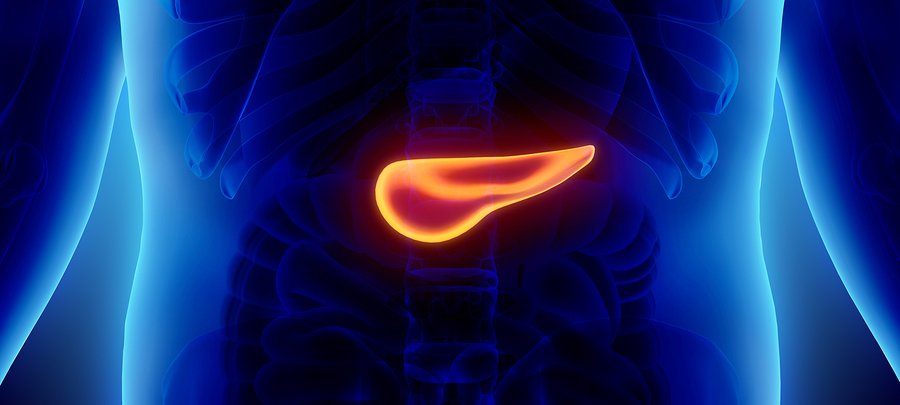If you were heavy during your youth and work hard now as an adult to keep your weight in the normal range, congratulations are in order because it’s a great accomplishment to break long-standing habits. Even if you’re still overweight and trying to change that, it is a very worthwhile effort. But health issues can crop up due to obesity in your childhood, even if you are no longer carrying all that excess weight. Links have been discovered between childhood obesity and cardiovascular disease. And now, there is another potentially deadly health problem that new research has shown is connected with teen obesity.
The study, which took place at Tel Aviv University in Israel, found that being obese as a teenager may elevate the risk of developing pancreatic cancer years later as an adult.1 Levi, Zohar; et al. “Adolescent overweight and obesity and the risk for pancreatic cancer among men and women: a nationwide study of 1.79 million Israeli adolescents.” Cancer. 12 November 2018. Accessed 20 November 2018. http://onlinelibrary.wiley.com/doi/full/10.1002/cncr.31764. These results are based on data gathered on 1,087,358 men and 707,212 women residing in Israel. Each of the subjects had a physical exam between the ages of 16 and 19, which took place during the years spanning from 1967 to 2002.
The investigators then pored through the Israeli National Cancer Registry, looking for cases of pancreatic cancer diagnosed among the participants up until 2012. They uncovered 551 diagnoses in this population sample during that time period, and the difference in risk for those who were overweight as teens compared to those who were normal weight was significant. The study found that men have an elevated risk of pancreatic cancer even when their weight during adolescence wasn’t high enough for them to be considered obese. Just being overweight as a teen is associated with a 97 percent higher risk of pancreatic cancer later in life. And, merely being at the high end of a normal weight range, with a BMI in the 75th to 85th percentile, is associated with a 49 percent higher risk of pancreatic cancer.
Women appear to have a greater risk of pancreatic cancer only when they were obese as teens, and not when they were overweight, with obesity as a teen conferring more than four times the risk of developing pancreatic cancer than their normal-weight peers.
While the study was not designed to prove cause and effect, it did effectively establish a clear association between early obesity and a higher risk of pancreatic cancer. Based on their mathematical calculations, the researchers attributed close to 11 percent of the diagnoses of pancreatic cancer to overweight or obesity in the teen years.
We do not know what other factors may have potentially contributed to the development of pancreatic cancer in any of the volunteers. Eating a poor diet high in unhealthy fats, having diabetes, and family history of the disease are among several factors that can impact the risk of this type of cancer, and therefore multiple influences may be at play. And one huge limitation of the study is that researchers lacked data on weight changes over time that might impact the risk of developing these tumors. In other words, how does losing that weight later in life affect your risk?
That being said, it does make sense that excess weight in the teen years could greatly affect the risk of pancreatic cancer later in life. A 2015 study at Granada University in Spain showed that high body mass index during adolescence can increase chronic inflammation throughout the body.2 Ferrari, M.; et al. “Inflammation profile in overweight/obese adolescents in Europe: an analysis in relation to iron status.” European Journal of Clinical Nutrition. February 2015. Accessed 21 November 2018. http://www.ncbi.nlm.nih.gov/pubmed/25205319. Chronic inflammation is harmful to cells and could potentially increase the risk of developing cancer over time.
So, what do you do now if you were overweight or obese during your teen years? First of all, don’t panic. While pancreatic cancer is one of the deadliest forms of the disease, it is also relatively rare. According to the Hirshberg Foundation for Pancreatic Cancer Research, approximately 55,000 Americans will be diagnosed with pancreatic cancer in 2018, and more than 44,000 will die from the disease. But compare those numbers to over 300,000 women who will be diagnosed with breast cancer and around 200,000 men who will be diagnosed with prostate cancer.
In any case, taking good care of your body now is the best defense against pancreatic cancer and many other conditions as well. Detox regularly to get rid of toxins that can accumulate in your pancreas and beyond. Make adjustments to your diet to incorporate a more Mediterranean diet, as well as cutting out processed foods and high-glycemic carbohydrates. Start a daily exercise routine that incorporates cardiovascular activity like walking or bicycle riding, strength training, and flexibility workouts. All of this will help you lose any excess weight you’re carrying, further lowering your disease risk.
References
| ↑1 | Levi, Zohar; et al. “Adolescent overweight and obesity and the risk for pancreatic cancer among men and women: a nationwide study of 1.79 million Israeli adolescents.” Cancer. 12 November 2018. Accessed 20 November 2018. http://onlinelibrary.wiley.com/doi/full/10.1002/cncr.31764. |
|---|---|
| ↑2 | Ferrari, M.; et al. “Inflammation profile in overweight/obese adolescents in Europe: an analysis in relation to iron status.” European Journal of Clinical Nutrition. February 2015. Accessed 21 November 2018. http://www.ncbi.nlm.nih.gov/pubmed/25205319. |











